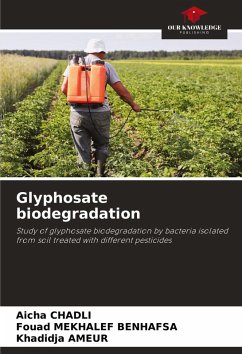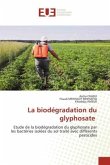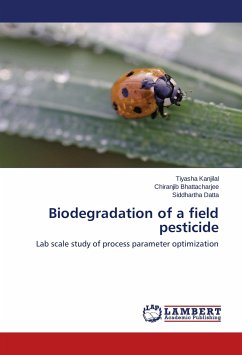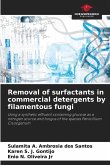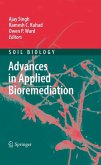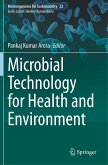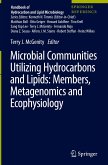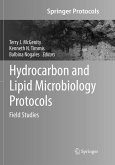Glyphosate (N-phosphonomethylglycine) is the most commonly used herbicide worldwide and in Algeria. Knowledge of the bacteria capable of degrading it is of great interest. Thus, in this study, thirty bacterial strains were isolated, by enrichment cultures, from three soils in the Mostaganem region treated with different herbicides (Glyphosate, Metribuzin and Linuron).These bacterial isolates showed high growth levels in the presence of glyphosate as the sole carbon source, so they were used for optimization studies of abiotic parameters for efficient glyphosate degradation. Twelve strains showed better growth results in a minimal medium containing 1 to 4g/l glyphosate for 48 to 120 hours of incubation, supplemented with glucose (1g/l). These strains were able to tolerate temperatures of up to 45°C, an initial pH (from 5 to 10) and NaCl levels of up to 5%. The twelve strains selected belonged to the Pseudomonadaceaethe Aeromonadaceaefamily Chromobacteriaceae the Rhizobiaceae and the Vibrionaceae.
Bitte wählen Sie Ihr Anliegen aus.
Rechnungen
Retourenschein anfordern
Bestellstatus
Storno

